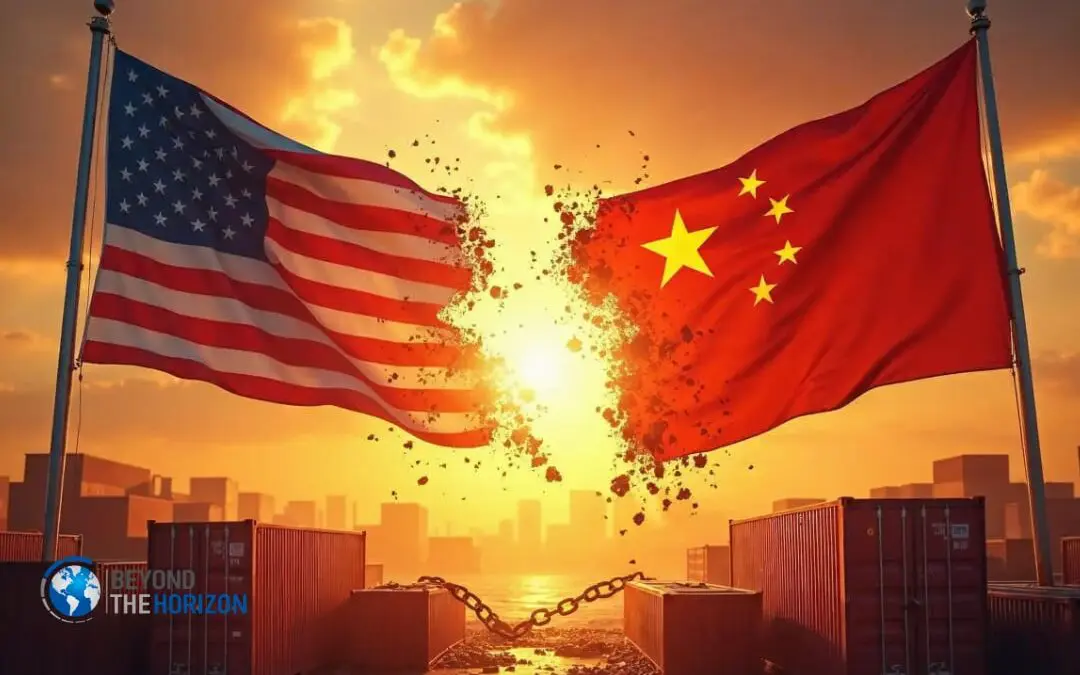### Navigating Through Trade Tensions: China’s Stance Against U.S. Tariff Threats
In the evolving landscape of international trade, strong statements and bold actions often capture headlines. Recent developments have seen China assertively addressing what it perceives as economic threats from the United States. Labeling these threats as “blackmail,” China has declared its readiness to withstand pressure and push back against the U.S., especially against the backdrop of increasing tariff impositions by President Trump’s administration.
#### Understanding the Core of the Dispute
The core issue at hand involves the United States imposing tariffs on Chinese goods, which are seen by the U.S. administration as a necessary measure to counteract unfair trade practices and intellectual property theft by China. President Trump, known for his hardline approach on trade, has frequently taken to platforms like social media to announce these economic measures, emphasizing that such tariffs are meant to level the playing field for American businesses and protect their interests.
In response, China has adopted a firm stance, refusing to be swayed or intimidated by the prospect of heightened trade barriers. This counter-stance is not just a knee-jerk reaction; it reflects a broader strategy of economic resilience and confidence in their global economic position.
#### China’s Reaction to Tariff Threats
China’s rebuttal to the U.S. tariff threats was stark, with official statements condemning the move as “blackmail.” The message was clear: China would not yield to pressure but would rather “fight to the end.” This rhetoric highlights a readiness to engage in a prolonged trade conflict if necessary, signaling to the international community and domestic audience that China views capitulation as a non-option.
This situation invites speculation on several fronts: the impact on global markets, the long-term economic implications for both countries, and how this conflict might reshape global economic dynamics. Analysts are closely monitoring these tensions, aware that the stakes extend far beyond the immediate economic metrics.
#### Long-Term Implications for Global Trade
The refusal of China to capitulate under tariff threats could lead to a prolonged trade war, which economists suggest might have far-reaching implications. For businesses and consumers, this might mean adjusted prices, shifting supply chains, and potentially, a reevaluation of international trade agreements and partnerships.
Moreover, other nations are watching closely, as these developments between two of the world’s largest economies could set precedents for future trade negotiations and disputes globally. How China and the U.S. navigate this issue could either open the door to a reformed approach to international trade or lead to a more fragmented global economic policy landscape.
#### Moving Forward
As both nations stand their ground, the global community remains alert to any possibilities for negotiations that might alleviate tensions. The resilience demonstrated by China against U.S. tariff threats is not just about the immediate economic impacts but also about setting a tone in international trade policies concerning sovereignty and respect.
In conclusion, while the term “fight to the end” encapsulates the immediate strategy of China in response to U.S. tariff measures, it also underscores a deeper narrative of seeking balance and fairness in global trade practices. As this trade conflict unfolds, it will undoubtedly redefine aspects of global economic interactions and prompt countries to reassess their strategies in the face of international pressures and opportunities.










